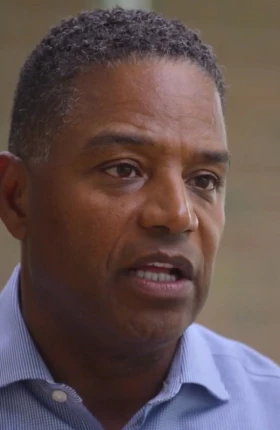The energy transition has entered a new phase—and a number of shifts, including an increased focus on energy security and affordability, are reshaping the path ahead.
Featured Insights
C-Suite Agenda
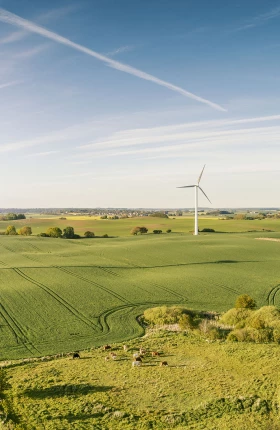
Article
March 27, 2025
Leaders must boost the finance function’s performance in several key areas to enable their companies to successfully navigate the energy transition.

Report
September 3, 2024
Companies have a major opportunity to move from providing clean energy solutions that customers think they should buy to creating compelling products and services that customers will want to buy.

Article
September 6, 2023
Achieving net zero will require driving an energy transition with unprecedented speed. That transition promises to have far-reaching implications.

Slideshow
September 24, 2024
To prepare for tomorrow’s global energy system, players need to understand how power market dynamics are evolving today.
Video
October 17, 2024
Exelon’s Calvin Butler on Leading the Energy Transition
Appointing a leadership team is often one of the first challenges facing a CEO. And it’s important strategically, culturally, and operationally. In this episode of CEO Moments of Truth, Exelon’s Calvin Butler shares his thoughts about choosing the right people to help lead the firm through a period of intense change. This includes finding the people who will step up during tough times.
Cost, Resilience, and Value Creation
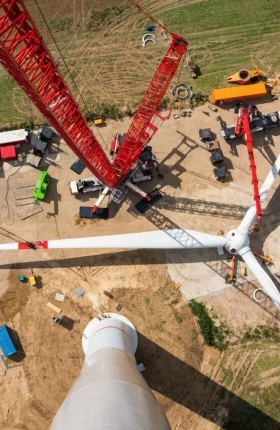
Article
September 8, 2025
Headlines may suggest climate investing is dead, but a confluence of tailwinds is creating opportunities in low-carbon technologies as well as in circularity, adaptation, and resilience solutions.

Article
July 16, 2025
As supply-demand imbalances and competition escalate, leading petrochemical companies are increasingly using M&As to improve performance and build resilience.

Article
July 17, 2025
By embedding long-term thinking into how they make decisions, manage debt, and allocate capital, executives can secure resilient value creation.

Article
April 1, 2025
Some refiners have already moved aggressively and produced big savings. Others have been slower to address inefficiencies.

Report
February 19, 2025
Electricity grid companies are embarking on a once-in-a-generation task to build the infrastructure needed to provide society with clean, secure, and affordable energy.
Weekly Insights Subscription
Stay ahead with BCG insights on energy
Innovation and Technology

Article
October 14, 2025
Utilities are investing heavily in tech-driven changes, but returns are patchy. A strategy with three clear focus areas can unlock the value of this spending.

Article
June 18, 2025
Winning in an AI-first energy world requires investing in algorithms, business processes, organizational culture, and new types of collaboration.

Article
May 31, 2025
Electricity demand from Belgian data centers is set to rise sharply as operators look beyond Europe’s traditional hubs to power the next wave of AI-driven growth.

Article
January 20, 2025
Data centers are booming, but power, supply chain, and sustainability challenges threaten growth. Here’s how companies can surmount the obstacles and meet the growing thirst for computing power.

Article
December 2, 2024
With AI and GenAI applications poised to revolutionize the oil and gas industry, companies must develop the capabilities to quickly and flexibly adopt these new technologies.

Article
November 8, 2024
AI development is fueling a surge in energy demand, threatening net zero commitments. By working together, CEOs across industries can keep both transformations on track.
The Future of Low Carbon Solutions

Article
April 22, 2025
Top performers adopt cost-efficient abatement activities, one of several practices that put them on track to hit self-imposed greenhouse gas emissions reduction targets by 2030.

Article
February 20, 2025
Oil and gas companies have a major opportunity to build low-carbon businesses. BCG research finds that they’re developing smart strategies to overcome challenges and lead the energy transition.

Article
June 24, 2024
BCG’s recent report outlines five ways to encourage removal of residual CO2 emissions, a critical factor in achieving global targets to curtail climate impacts.

Article
July 26, 2024
As a climate mitigation tool, recycling captured carbon—rather than storing it—is attracting growing interest. But how viable is it?

Article
September 28, 2023
These novel approaches accelerate the timelines of large projects while reducing costs and risks.
Industry Solutions

Article
July 2, 2025
Convenience retailing is essential for service stations’ long-term viability. But to succeed, players must have their finger on the pulse of evolving consumer preferences.

Report
July 10, 2025
TSOs are facing unprecedented capital deployment as they support the energy transition. Our analysis reveals a €250bn gap between expected operating cash flows and required capex through to 2030.

Article
June 23, 2025
The Win-Cost playbook helps offshore wind developers achieve competitive LCOE by setting bold targets, optimizing costs, and transforming project delivery.
Video
January 29, 2025
AI Is Pulling the Technology and Energy Sectors Closer Together
As AI investments soar, so do energy demands. BCG’s Vaishali Rastogi and Pattabi Seshadri discuss the deepening relationship between the technology and energy sectors.
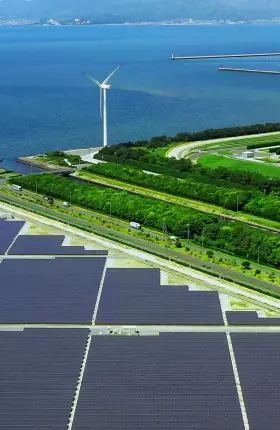
Article
April 23, 2024
Successful developers and investors take into account market differences. But they also rely on five factors that hold true across the region.

Update
July 10, 2024
These are some of the key signposts to look for when considering different scenarios for future oil demand.
Expert Interviews
Video
July 23, 2025
Discover how Bahrain is tackling the energy trilemma—balancing sustainability, affordability, and security—in its national transition strategy.
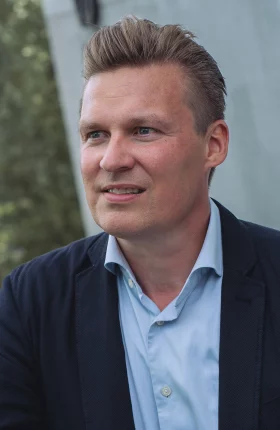
Article
January 31, 2024
Green hydrogen will radically change how we power the planet–and the Nordics are frontrunners.
Video
Transforming an Energy Retailer
Discover how Ergon Energy Retail, an Australian utility, is transforming its business to provide sustainable and dependable energy.
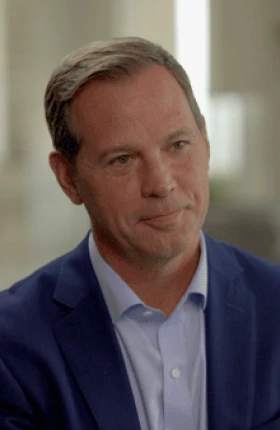
Mike Boots, executive vice president of Breakthrough Energy, discusses the importance of supporting climate tech companies through every stage of the innovation cycle.

BioCirc is a Danish scale-up that has grown to become one of the world's largest biomethane producers in just a few years. What makes BioCirc unique is its integrated energy cluster concept that groups different technologies, including solar, wind, biogas, electrolysis, pyrolysis, and Power-to-X solutions into a circular energy system that meets all the energy needs of the local community. This way of working also significantly reduces CO2 emissions compared to traditional solar and wind projects. Learn more about how BioCirc has built and scaled its green business so quickly, and its plans for a global expansion as the next stage of its mission to accelerate the energy transition.
Explore More
Industry
Capability







